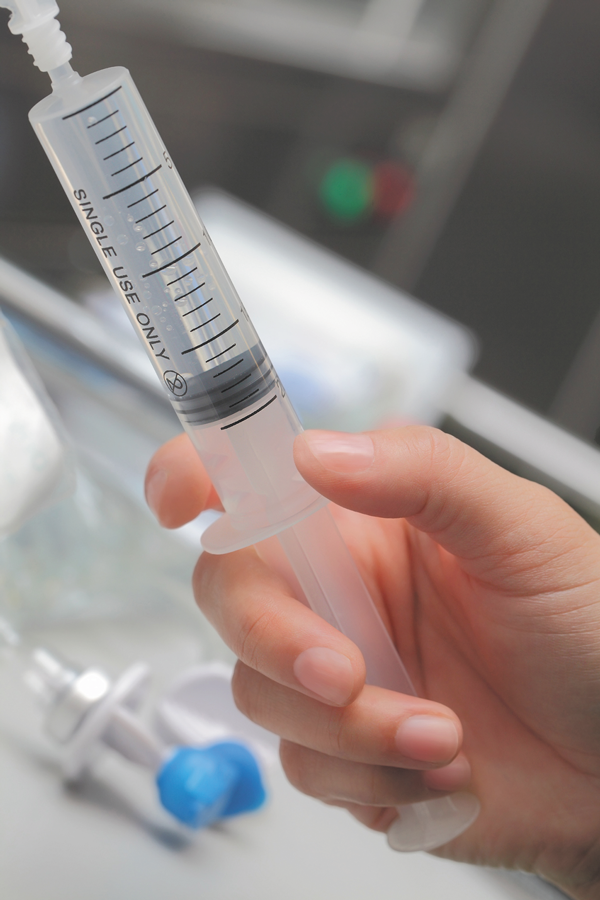Recent Articles

Medicare versus Medicaid: Key differences

Lost a tooth? What to know about dental implants

Hyperbaric oxygen therapy: Evidence-based uses and unproven claims

Gatorade. Liquid IV. Do you need extra electrolytes?

Sexual violence can cast a long shadow on health

Prostate cancer: Short-course radiation just as effective as longer-term treatments

Eggs, protein, and cholesterol: How to make eggs part of a heart-healthy diet

Can a quick snooze help with energy and focus? The science behind power naps

Autism: The challenges and opportunities of an adult diagnosis

Hospice care: Overview of a compassionate approach to end-of-life care
Stroke Archive
Articles
Flu shot may lower risk of early death in people with high blood pressure
In the journals
Need another reason to get your annual flu shot? It could protect you from a fatal heart attack or stroke if you suffer from high blood pressure, according to research presented at a 2019 joint conference of the European Society of Cardiology Congress and the World Congress of Cardiology.
Previous research has found that the inflammation from a flu infection can trigger a heart attack or stroke, and people with high blood pressure are especially at high risk.
A major change for daily aspirin therapy
New recommendations could affect millions of people.
You may remember a time when taking a daily baby aspirin was almost a rite of passage for generally healthy older adults. The idea was that, for people with a low to moderate risk for heart disease, aspirin therapy was a simple and cost-effective way to help prevent a heart attack or stroke.
But taking aspirin increases the risk for bleeding in the stomach and brain (see "How aspirin affects the body").
Ultra-processed foods linked to poor heart health
Research we're watching
Eating ultra-processed foods — such as packaged snacks, sugary cereals and drinks, chicken nuggets, and instant soup — may leave people more prone to heart disease and an early death, two new studies suggest. Both were published May 29 in The BMJ.
One study followed more than 105,000 adults for just over five years. Researchers found that for every 10% increase in the amount of ultra-processed foods people ate, their risk of a heart attack, stroke, or other serious cardiovascular event was 12% higher. The other study tracked nearly 20,000 people over an average of 10 years. People who ate more than four servings of ultra-processed foods daily had a 62% higher risk of dying from all causes compared with those who ate only two servings per day.
Urinary tract infections: A possible trigger for stroke
Research we're watching
Infections — especially those in the urinary tract, known as UTIs — may raise the risk of a stroke, a new study finds.
Researchers examined the electronic medical records of more than 191,000 stroke patients to see if they'd been hospitalized or gone to an emergency room for an infection shortly before the stroke. They tracked infections of the abdomen, blood, respiratory tract, skin, or urinary tract.
Red meat, TMAO, and your heart
A substance called trimethylamine N-oxide, which is produced when your body digests red meat, may raise the risk of cardiovascular problems.
Experts used to think that red meat raised your risk of heart disease simply because it was high in saturated fat. But today that picture has gotten more complicated thanks to the discovery of a metabolite — a substance produced during digestion and metabolism — called trimethylamine N-oxide, or TMAO.
According to a news article published June 11 in JAMA, three recent analyses have linked high blood levels of TMAO with a higher risk for both cardiovascular disease and early death from any cause. In one of those studies, researchers found that people with higher levels of TMAO in their blood may have more than twice the risk of heart attack, stroke, or other serious cardiovascular problems, compared with people who have lower levels. Other studies have found links between high TMAO levels and heart failure and chronic kidney disease.
What is a bubble study?
Ask the doctor
Q. My cardiologist mentioned that he was going to do a "bubble study" during my echocardiogram. What is that?
A. During an echocardiogram, a technician uses a probe that emits high-frequency sound waves (ultrasound) that "echo" off the structures of your heart. The waves, which are translated into video images visible on a monitor, can reveal in-formation about your heart's structure and function. A bubble study gives added information, as it can identify potential blood flow issues inside your heart.
Feel healthy? You still may be at risk for heart disease
In the journals
Even if you believe you're in excellent health, you could still be at risk for a heart attack or stroke, suggests a study of more than 6,800 people, average age 62, published Feb. 15, 2019, in JAMA Network Open. At the study's beginning, participants rated their health as excellent, very good, good, or poor/fair. (More than half the men reported being in very good or excellent health.)
Next, everyone had a coronary artery calcium (CAC) scan, which detects plaque buildup in the arteries of the heart. The scores range from zero to 100 and higher, with zero meaning no plaque buildup is present and cardio-vascular disease risk is at its lowest.
Does drinking alcohol raise the risk of stroke?
Research we're watching
Contrary to observations that moderate drinking (one or two drinks per day) protects against stroke, a new study finds that stroke risk may rise with increasing alcohol intake.
The findings, which were published online April 4 by The Lancet, come from a study involving 160,000 Chinese adults who reported their drinking habits. They also were tested for gene variants common in Asian populations that cause an unpleasant flushing reaction after drinking. Only 2% of women reported drinking alcohol, compared with 33% of men, so the findings focus mainly on men.
Ministroke: A warning sign of a major problem
Even short-lived, subtle stroke symptoms should be evaluated.
Imagine trying to write a note, but it feels like you're moving the pen through wet concrete. Or you suddenly can't see normally — it's as if a black curtain has dropped over one of your eyes.
If these odd symptoms last for only a few minutes, you might be tempted to brush them off and blame muscle cramps or fatigue. Don't make that mistake, says Dr. Christopher Anderson, director of Acute Stroke Services at Harvard-affiliated Massachusetts General Hospital. Both of the above scenarios are examples of a possible transient ischemic attack (TIA), commonly referred to as a ministroke. Caused by a temporary lack of blood in part of the brain, a TIA is a warning sign that you are at risk for a stroke.
Deep-vein blood clots: What you need to know
Learn how to recognize and prevent this dangerous condition, known as venous thromboembolism, or VTE.
When a blood clot blocks an artery supplying the heart or the brain, the result is a heart attack or stroke. Most Americans are familiar with these two serious health threats. But they're probably less familiar with the dangers of venous thromboembolism, or VTE — a clot that forms in a vein.
A clot in the leg or arm, known as deep-vein thrombosis, can cause pain, swelling, and redness in the affected limb. But the real threat occurs if the clot breaks off and travels to the lungs, causing a pulmonary embolism.
Recent Articles

Medicare versus Medicaid: Key differences

Lost a tooth? What to know about dental implants

Hyperbaric oxygen therapy: Evidence-based uses and unproven claims

Gatorade. Liquid IV. Do you need extra electrolytes?

Sexual violence can cast a long shadow on health

Prostate cancer: Short-course radiation just as effective as longer-term treatments

Eggs, protein, and cholesterol: How to make eggs part of a heart-healthy diet

Can a quick snooze help with energy and focus? The science behind power naps

Autism: The challenges and opportunities of an adult diagnosis

Hospice care: Overview of a compassionate approach to end-of-life care
Free Healthbeat Signup
Get the latest in health news delivered to your inbox!
Sign Up











